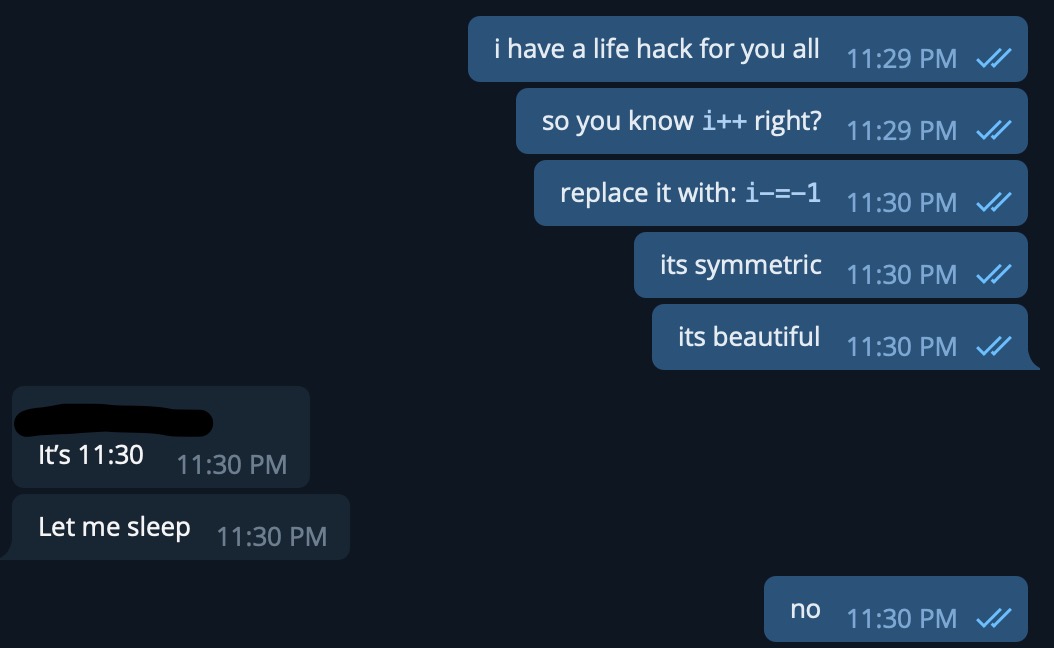this post was submitted on 19 Jun 2023
470 points (99.4% liked)
Programmer Humor
20039 readers
908 users here now
Welcome to Programmer Humor!
This is a place where you can post jokes, memes, humor, etc. related to programming!
For sharing awful code theres also Programming Horror.
Rules
- Keep content in english
- No advertisements
- Posts must be related to programming or programmer topics
founded 2 years ago
MODERATORS
you are viewing a single comment's thread
view the rest of the comments
view the rest of the comments

Isn't the evaluated value different from the expression?
i++returns the value of i before increasing.i-=-1would return the value after it has been increased. Wouldn't it be more correct to make it equal to++iAnd that's why post- and pre-increment is non-existant in Python and Rust. It's an easy source for bugs for a noncritical abbreviation🤷
They're especially also a source of bugs, because they encourage manually incrementing indices and manually accessing array positions, which is almost never actually sensible.
I love iterators so much.
If you're hell bend on achieving the goodness of
i++equivalent you could wrap it up like this:(i-=-1,i-1)We're talking C here of course.
In the languages I know,
i-=-1orx=3are not expressions, but rather statements, so they do not evaluate to a value.So, this would be a compiler error:
Well, not all languages allow for fun programming :)
Sounds like the opposite of fun to me, to have those as expressions...
Please explain in less detail to help me understand, internet friend.
In C you can group expressions within
(and)separated with,. Expressions are evaluated in order and the last expression in the group is the returned value of the group.I gave it a shot in Compiler Explorer, with the following code:
GCC takes the
i-=-1and optimizes it intoADD DWARD PTR [rbp-4], 1, and changing it around to++iori++makes no difference.So, at least in C and C++, it works all the same. Even on unsigned integers.
It works the same because the value of the last expression in the
forloop is not used for anything. It's the side effect of that statement that counts. Eg, the value ofiis checked the next time the for loop is executed by the condition check. Try replacingiin the condition check instead withi++or++iand you would see different results.Something like:
for (int i = 0; ++i < 10;) { ... }